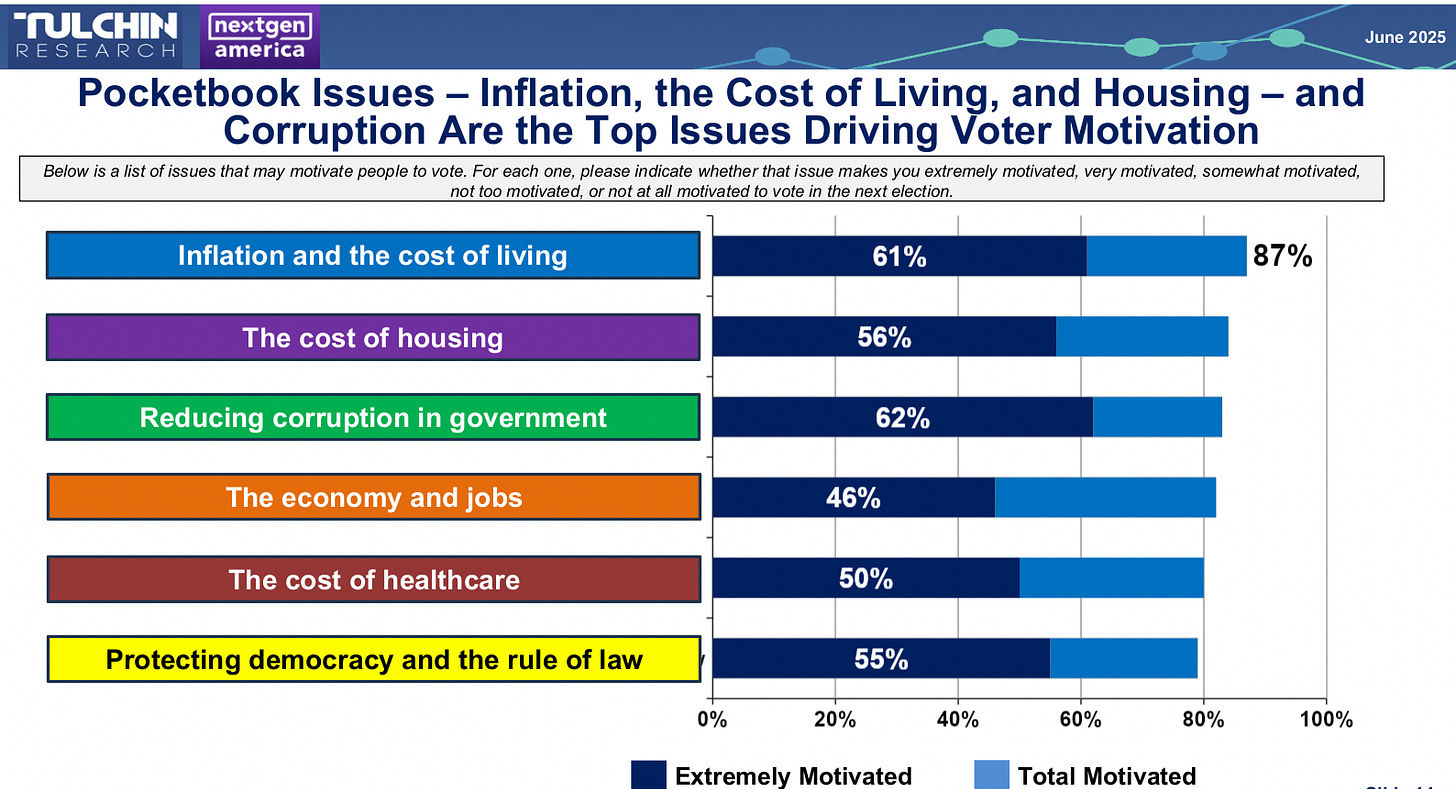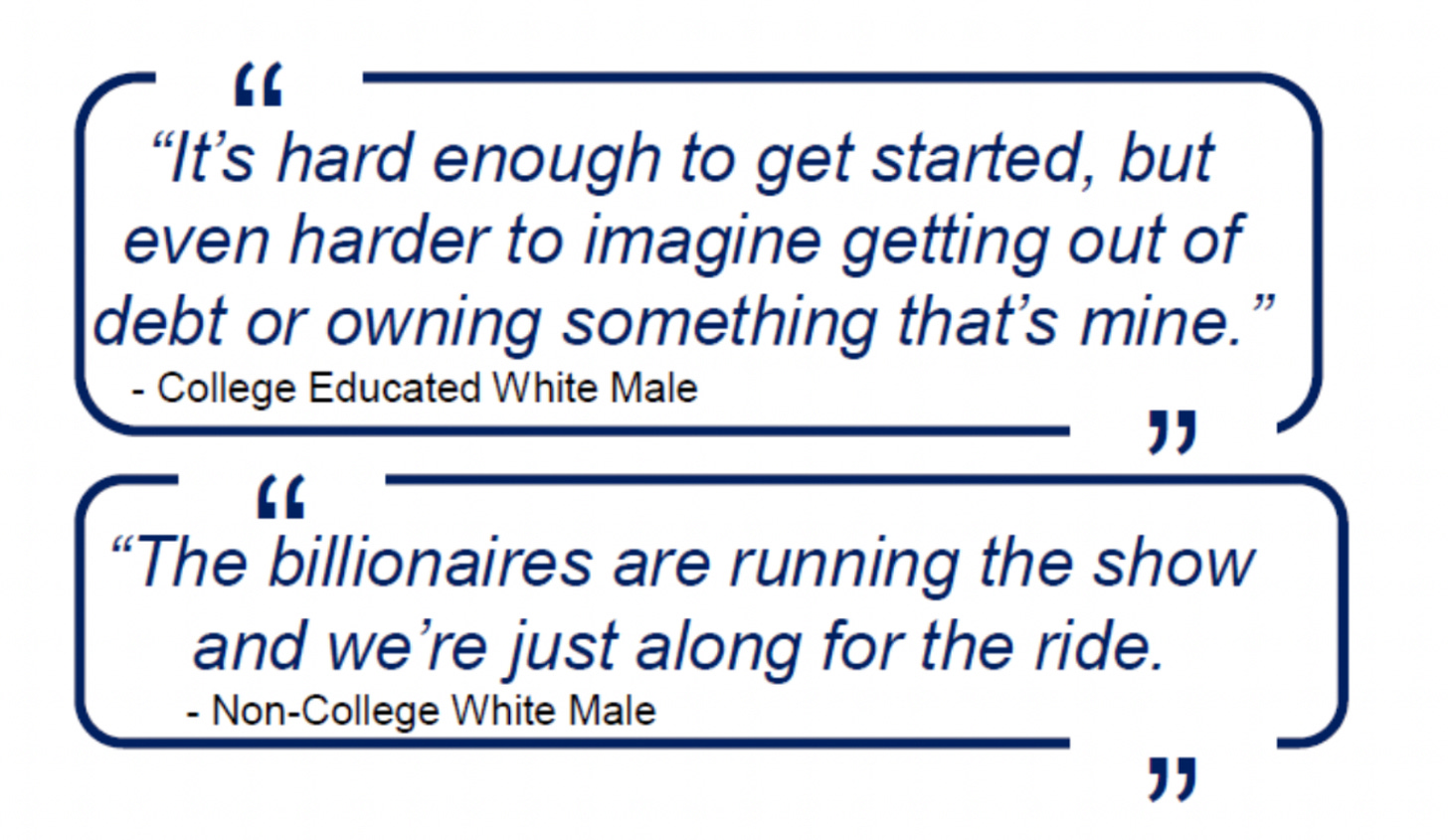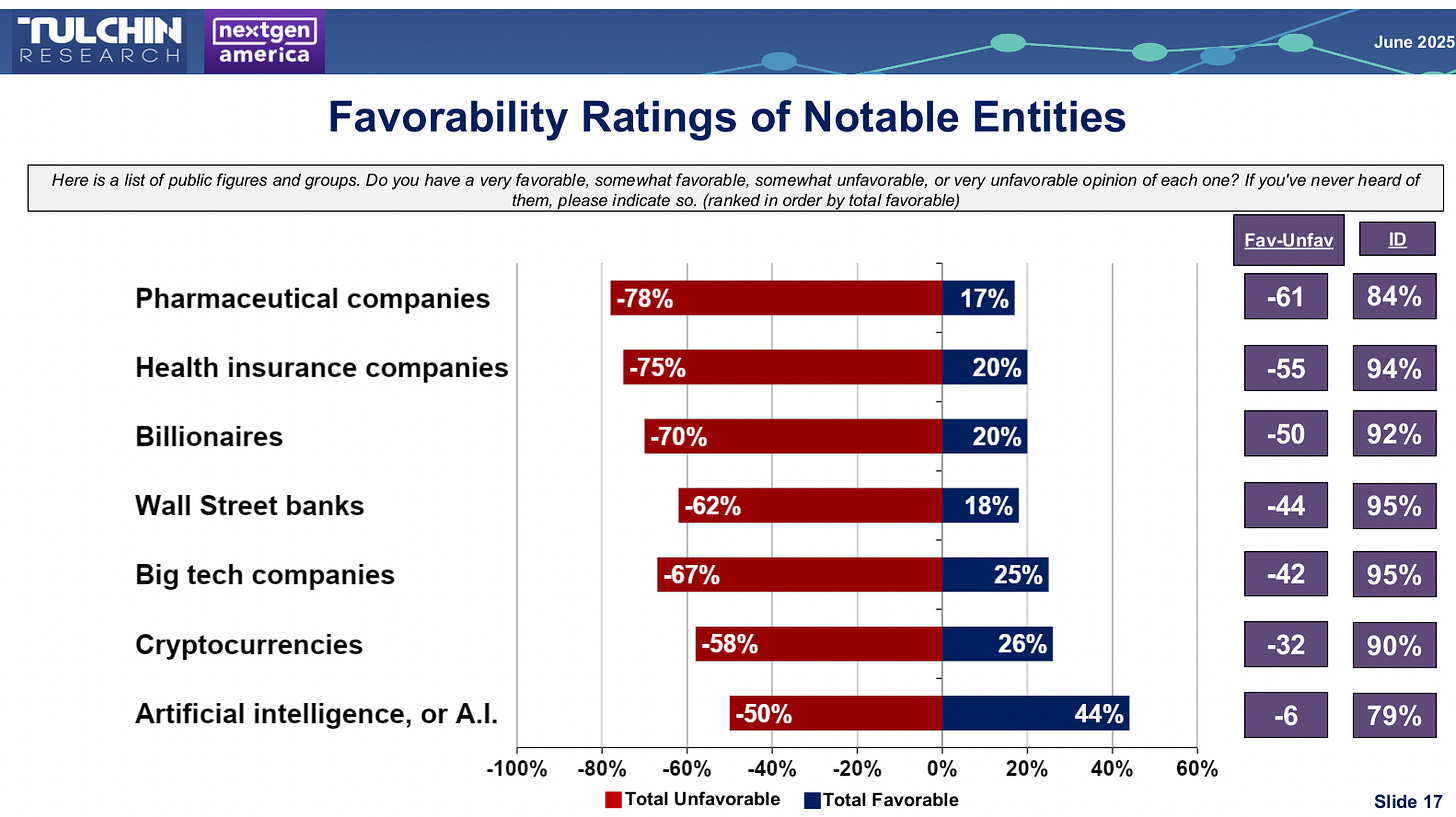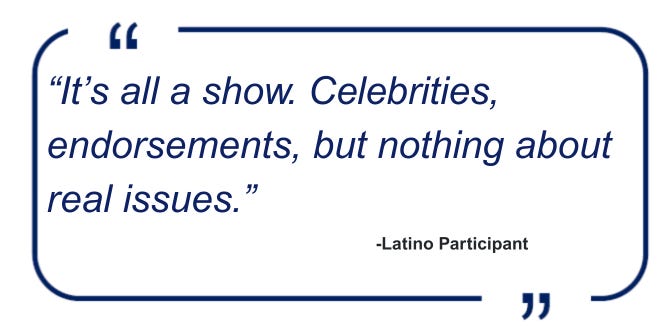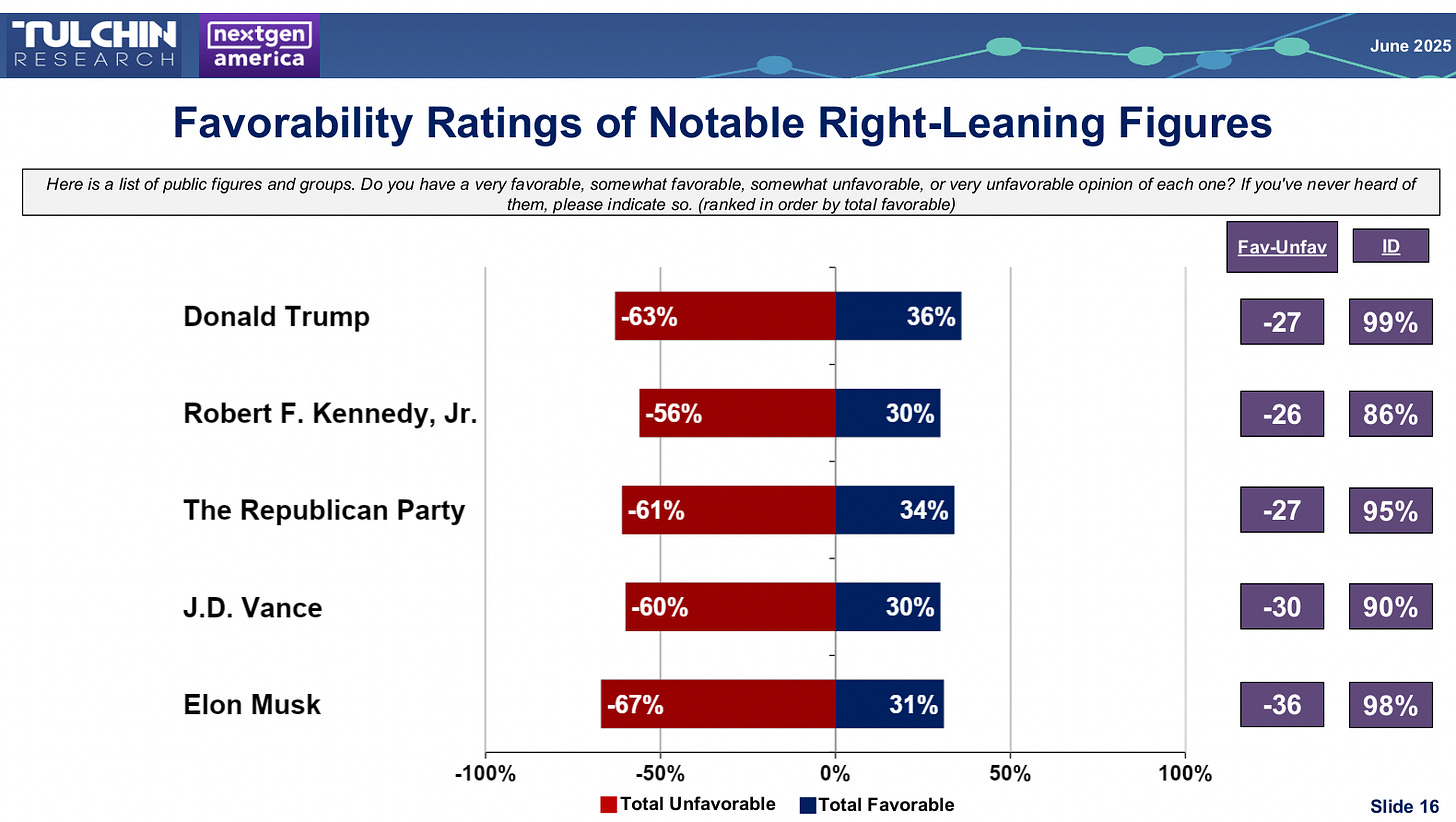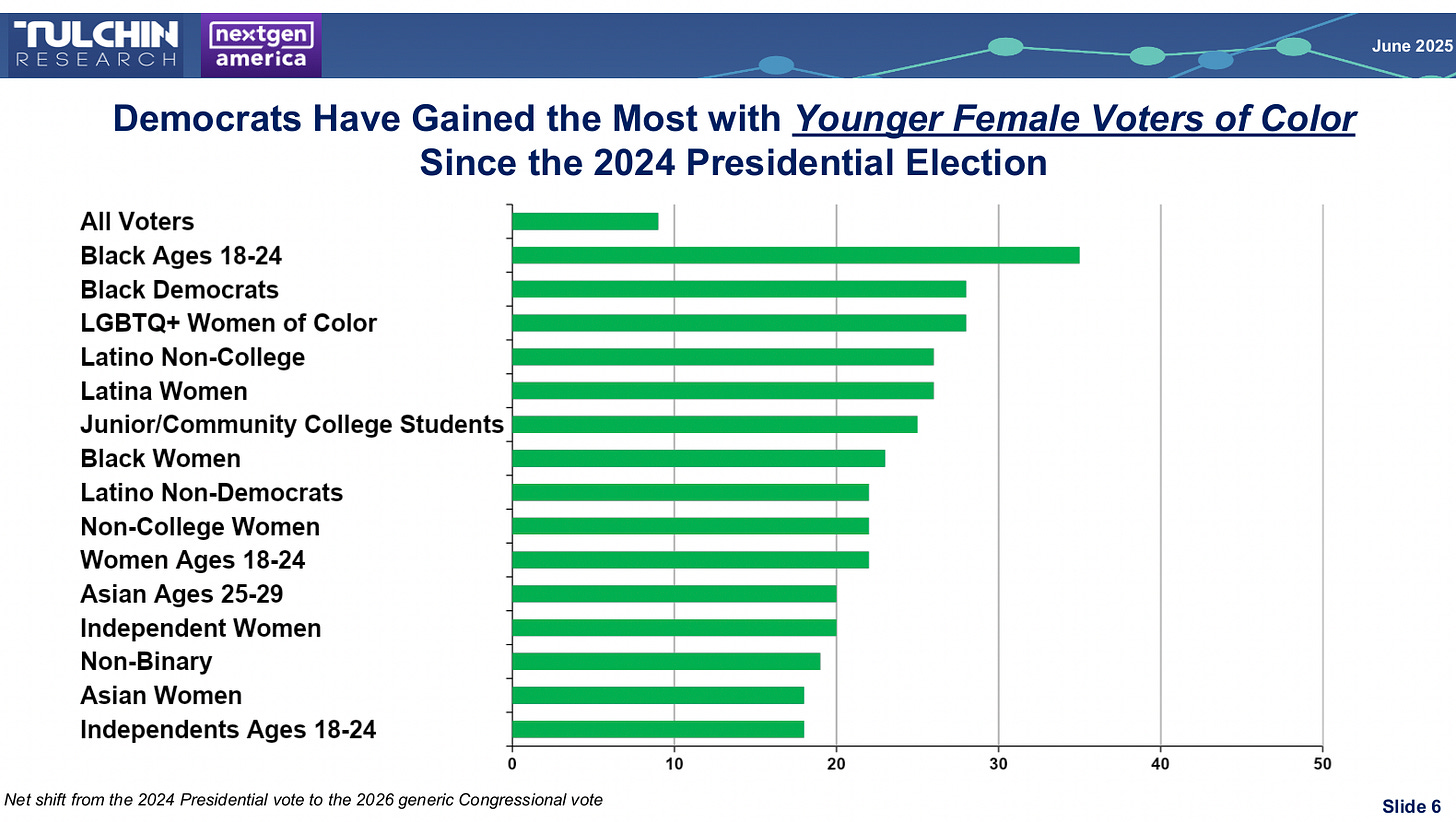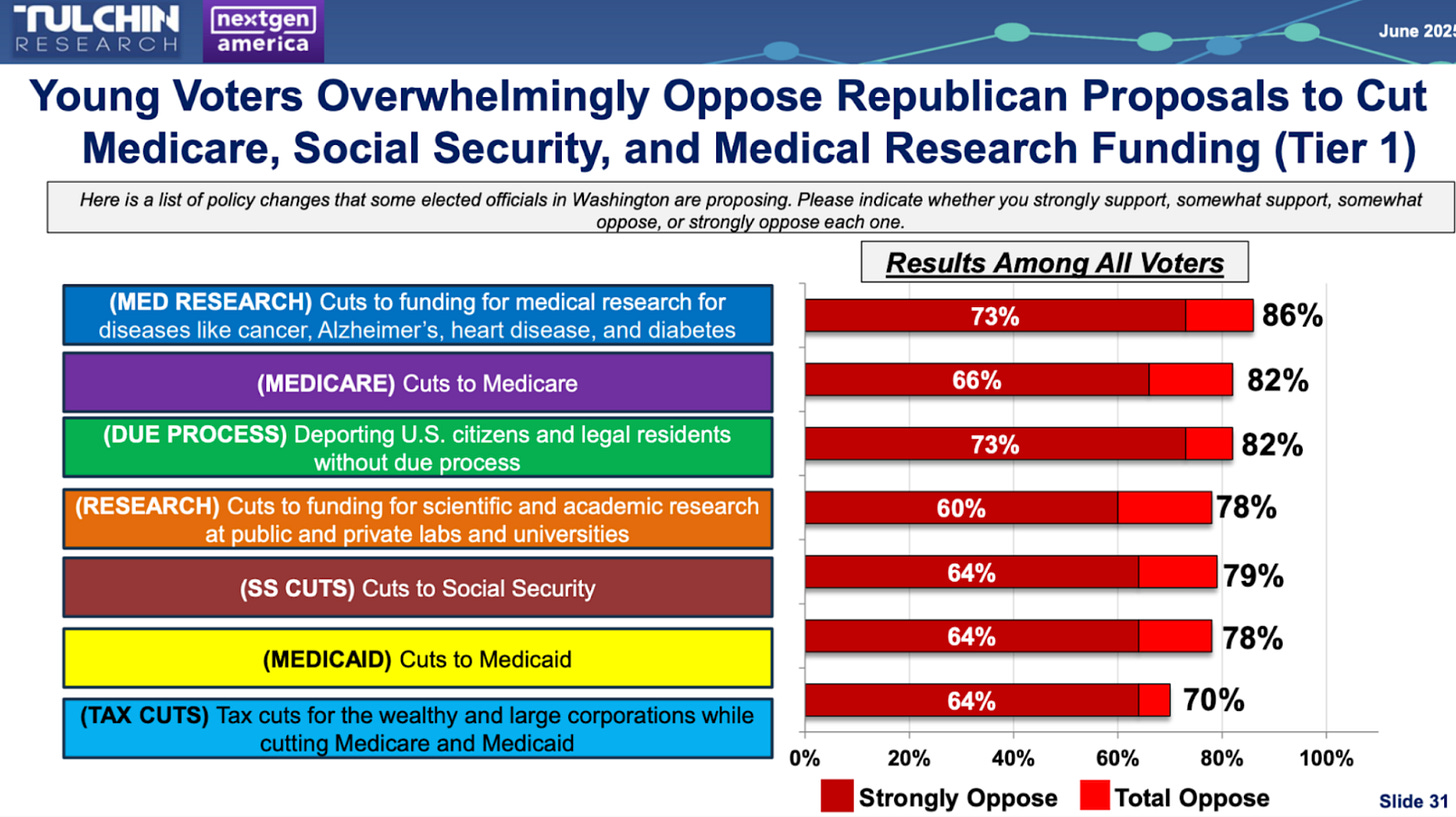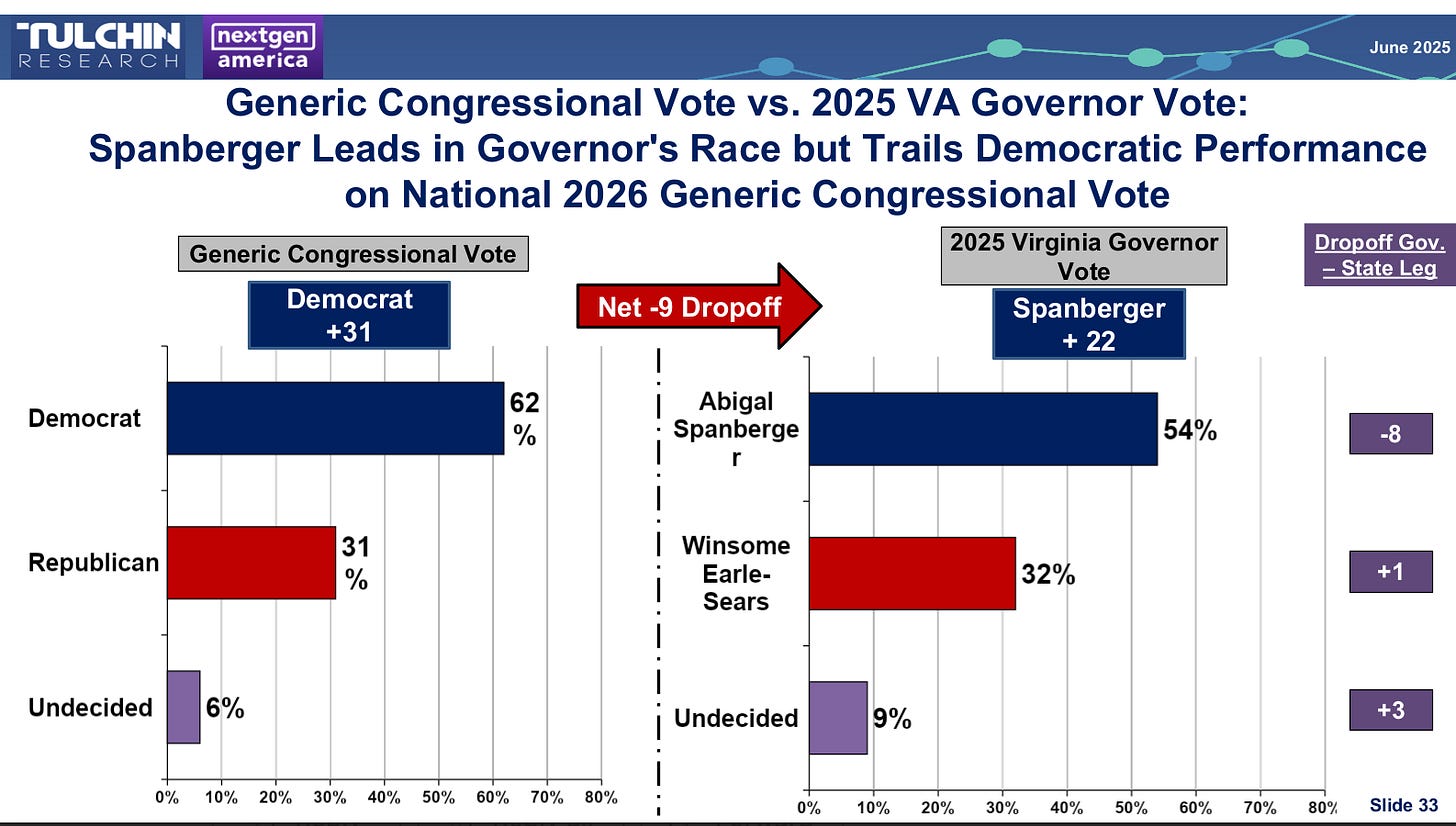We did some polling…
And young voters are feeling extremely fed up with politics (and politicians) right now.
Last month NextGen America and Tulchin Research conducted an extensive nationwide youth-vote poll to get a political vibe check on young people right now. This poll, alongside focus groups, surveyed 1,300 registered voters aged 18-29 nationwide with an oversample in Virginia. The poll is unique because it is solely focused on young voters. Where other polls represent this demographic as a single column on a crosstab – this poll has a higher statistical validity and more accurately represents young people and their current opinions. First reported on Rachel Janfaza’s The Up and Up, the poll reveals the top issues and the most effective messaging to connect with young people and win the youth vote.
Introduction
Young voters are not checked out — they’re fed up. A generation raised amid economic instability, climate crisis, and institutional failure is demanding more than soundbites from their leaders. NextGen America’s May 2025 poll, conducted by Tulchin Research, provides a clear snapshot of the 18–29-year-old electorate: deeply anxious about their future, skeptical of political institutions, and seeking bold, authentic leadership that delivers tangible results. Populist economic messaging stands out across demographics, which speaks to the economic pressure young people are facing in their day to day lives.
With the Trump Administration doubling down on policies that hurt young people, and Democrats at risk of being seen as ineffective, the path forward is clear — young people want a government and economy that works for them, not billionaires.
NextGen America’s national poll of 1,300 voters aged 18–29, including an oversample in Virginia, offers one of the most accurate snapshots of young voter sentiment in 2025. Unlike most polls that relegate young people to a crosstab, this survey centers them, offering unique insights into their priorities, frustrations, and expectations.
Despite being skeptical of institutions, young people care deeply about the issues — and their values align with Democrats. But that support isn’t automatic. To mobilize this critical bloc, Democrats must act with urgency, authenticity, and bold economic vision.
The Main Takeaways
Widespread economic anxiety is driving motivation. It cuts across all demographics of 18-29 year olds.
Their top issues come down to affordability: inflation and the cost of living, the cost of housing, the economy and jobs, and the cost of healthcare are all included in their top five issues. Economic issues are motivating young people to vote.
Young people are deeply concerned about the economy and affordability – 87% are motivated by inflation and the cost of living – and believe Trump and Republicans are making it tougher for younger people to succeed by killing good jobs, driving up prices on basic goods like food, cars and computers, and making it harder for people to pay their student loans, buy their first home, start a new business, or start a family.
They are disillusioned and feeling rage, not apathy. They don’t like institutions or parties and they don’t trust elected officials or corporations to fix their problems.
Three out of four young voters don’t feel like elected officials are listening to them, yet they have not given up or checked out. The majority of young voters still believe that their vote matters.
They believe in a populist economic vision. They are anti-corporate power and billionaire control. They dislike billionaires, corporations, and corruption.
The most persuasive messages for young voters call out corruption and wealthy special interests, and focus on making life more affordable.
Young voters have an extremely low opinion of large corporate institutions and billionaires; pharmaceutical companies, health insurance companies, wall street banks, big tech, crypto and AI.
They want authenticity. Receipts, not vibes. Policy is power. Politicians who are viewed as authentic, Bernie Sanders and Alexandria Ocasio-Cortez, are by far the most popular with young voters.
Folks in our focus groups admired Bernie and AOC for being authentic fighters.
This generation is not easily swayed by talking points. They want leaders who they believe will walk the walk — passing economic populist policies, not just campaigning on them. Many are disillusioned with both parties, yet 55 % still believe in the power of their vote and the potential of real leadership.
Young voters care more about issues than party identification; neither party has a lock on their vote. They prioritize economic issues, and oppose the economic policies of the Trump Administration.
While the Democratic party is more favorable (net -9) than the Republican Party (net -27), both major parties are viewed unfavorably by young voters. Young people view all major Republican party figures highly negatively.
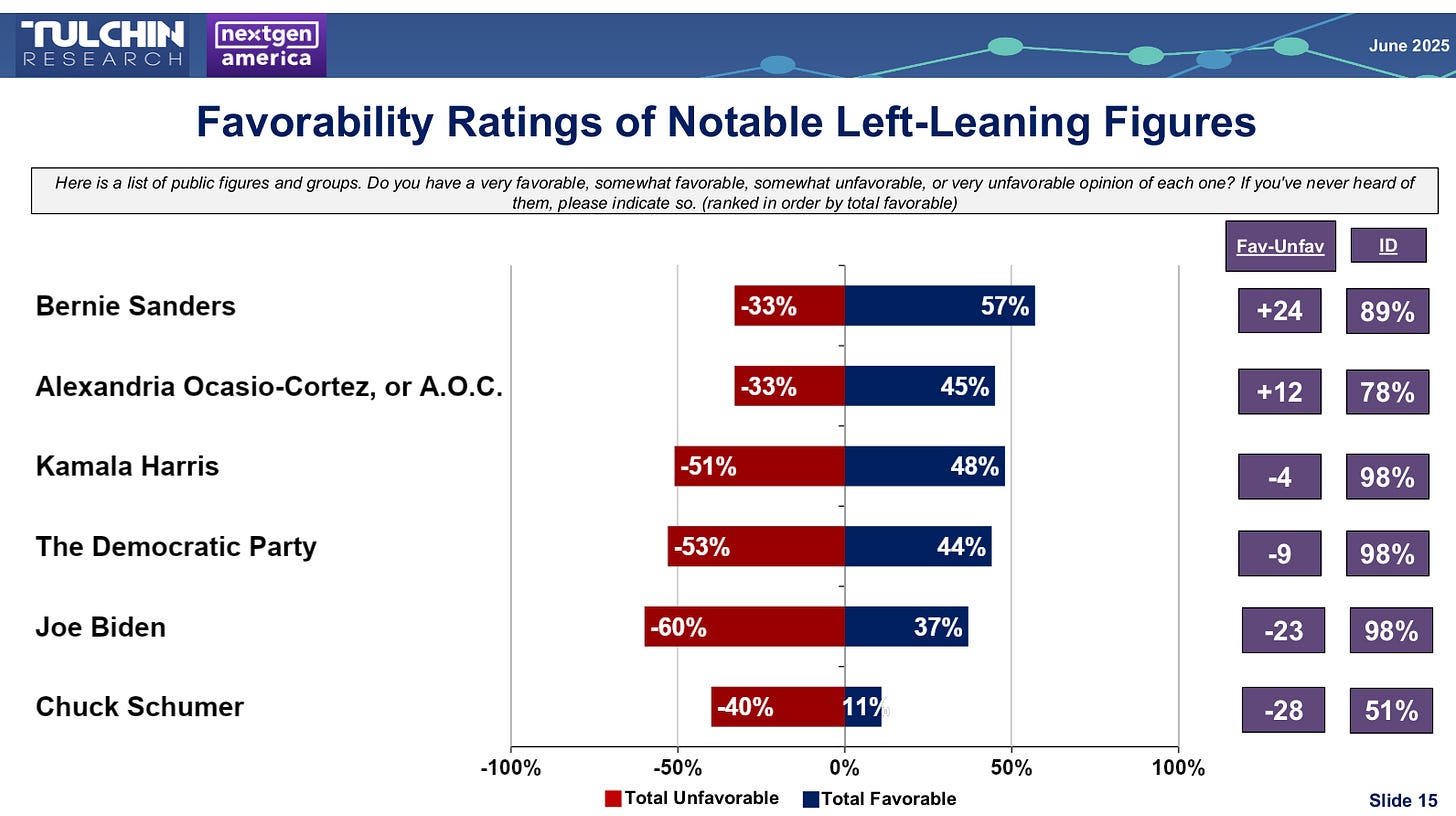
A subset of young voters have moved back towards Democrats since 2024, because they do not like what is happening in Trump’s economy.
Democrats have rebounded the most with young Black voters and young women of color.
Trump’s approval rating on his handling of the economy is deeply underwater, with 61% disapproving.
Young voters overwhelmingly oppose Republican proposals to cut medicare, social security, and medical research funding.
In Virginia, Spanberger has ground to gain with young voters. She is up overall, but underperforming the generic ballot by -9. She has the most to gain with left-leaning voters, including liberal Democrats, white liberals, Democratic women, and Black voters. They are winnable, but only with the right approach.
The most effective messages for these voters focus on the economy, affordability, corruption, and women's rights. Among Black voters, attacking billionaires is also effective.
Conclusion
Young voters are not disengaged; they are demanding a government that truly represents their needs. They are angry, motivated, and well-aware of who is manipulating the system and who needs to make changes. These young voters are moveable and winnable, but they’re also loseable. We have to fight for the issues they care about in an ongoing way to earn their vote.
Young voters—particularly young women and voters of color—are gravitating back toward Democrats after major losses in 2024, driven largely by backlash to the negative impacts of Republican policies. But this renewed support is reactive and tentative—not guaranteed—and must be earned. In order to truly sway and activate this electorate, it requires tangible policy wins and a long-term investment of year-round education, communication, and outreach.
Democrats cannot afford to rely on superficial feelings or vague sentiments. To earn this generation's vote, we must push for bold, economic policies that address issues like affordability, corruption, and corporate greed—and we need to start immediately. Young voters are receptive to change, but only if we actively advocate for them, as their future depends on it. Winning over the next generation requires more than just good intentions; it requires concrete action and accountability.
Subscribe, share our post, stay tuned, and reach out if you want to get in touch!
On our Minds and On Our Feeds
Join our virtual Pride events:


